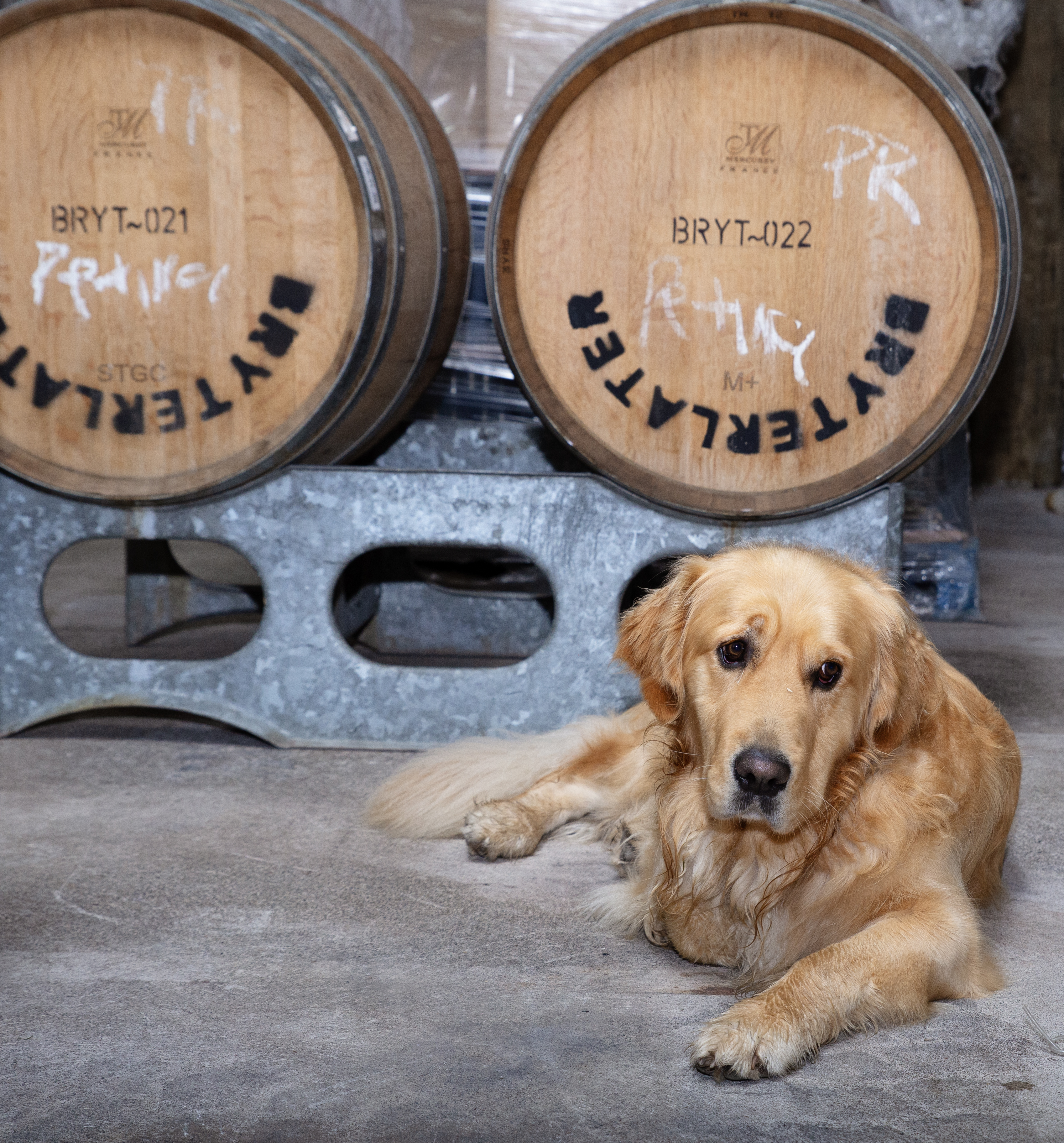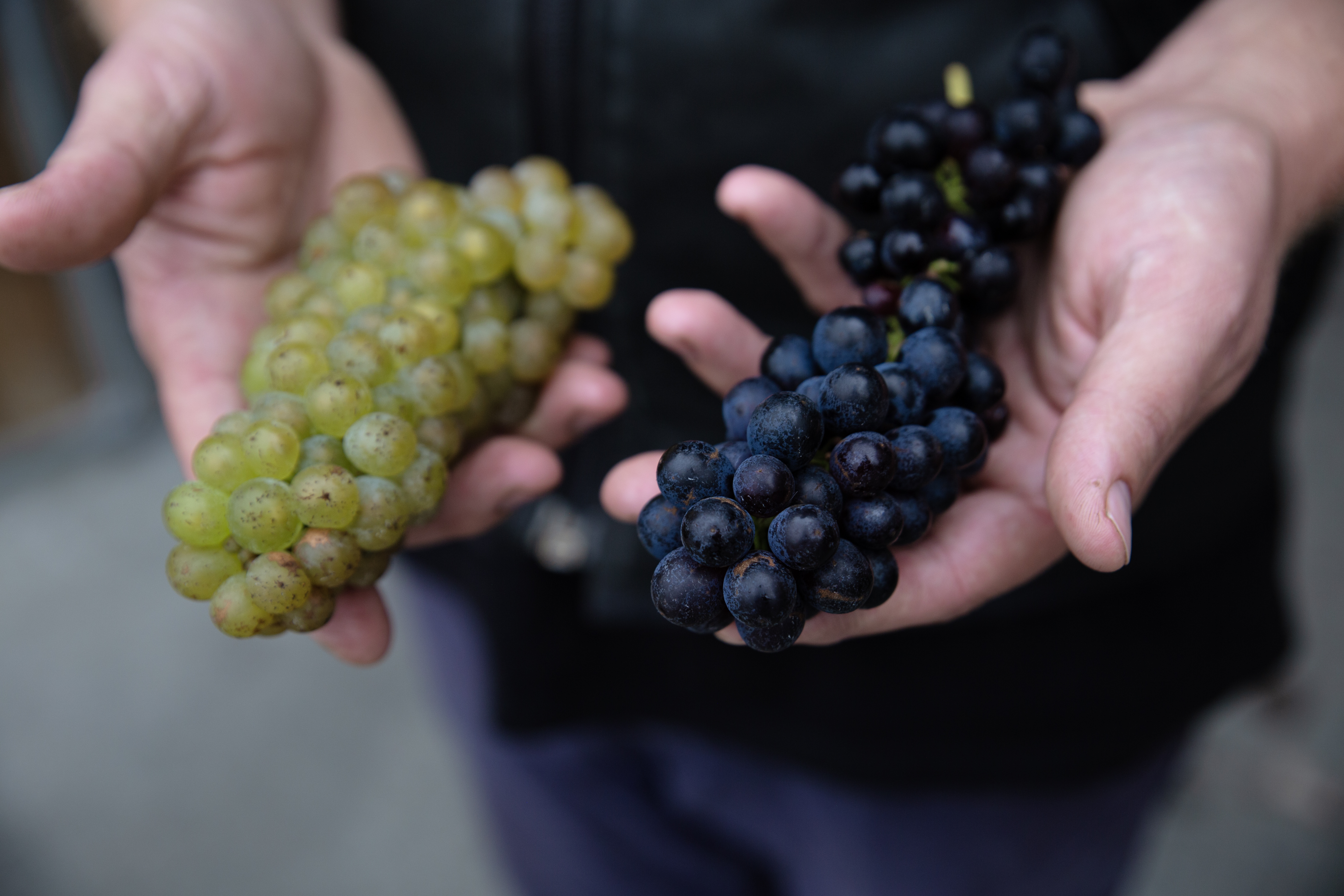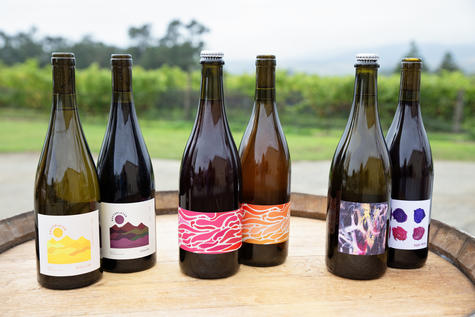Ancient traditions for modern wine

Natural wine once carried a slightly murky reputation, with bottles that appeared unfinished or laden with sediment—hard to appreciate for those unaccustomed to the style.
Now enjoying a surge in popularity with wine aficionados, it could be easy to dismiss these wines as a fleeting trend, served only at pretentious restaurants alongside minuscule portions of something often foraged.
But this couldn't be further from the truth.
Natural winemaking is far from new.
Rooted in a low-intervention philosophy that stretches back thousands of years, it's shaped by the landscape and environment in which it's produced.

In the heartland of the North Canterbury wine region, two winemakers are challenging perceptions of natural wine and bringing these adventurous, unpredictable wines to the everyday glass.
James Opie of Bryterlater Wines and David Collins of 15 Minute Bottles have partnered in a shared winery in Waipara.
Their labels are distinct and individual, and then there is their collaborative venture, Matter of Time Wines, which aims for a broader, more mainstream market.
"We want to make wines that a 65-year-old uncle can drink with his nephew—wines that break boundaries, wines with concentration but with fun and playful natures as well," says Opie.
Natural wines are created using a low-intervention approach, often unfiltered and unrefined.

The grapes are grown biodynamically and organically, though it's difficult to source certified organic fruit due to its limited availability.
"We would love to only work with certified organic fruit in the future, but at this point, we need to be practical," Opie admits.
Grapes for their three labels come from local Waipara growers, including Haydon Good, Sam Bedford, and Matt Barbour, and from the Luxton Vineyard near Oxford as well as some from Central Otago.
A region's unique terroir plays a major role in shaping the wine's character.
"Waipara is especially great for growing white varieties," says Collins. "It offers such a balance in the wine. The minerality from a diverse terroir—river gravel and hillside clay—isn't just one soil type."
Opie explains that the pair's relationship with growers often influences the wine concept before the harvest.
"You have to know what kind of wine you want to make in September or February, even though you're not picking until March.

"We closely monitor the process and only intervene when necessary."
Natural winemaking is a "slower way of doing things," Opie says.
"It requires patience in the vineyard and patience in the winery."
"But we don't have the same tools in our toolkit as we would if we were making conventional wine."
That adds another layer of challenge in wetter, cooler vintages.
"That's what we are dealing with at the moment.
"The fruit isn't getting ripe at the rate we would like it to, but the acid is also dropping, so we are trying to find a balance in our picking decision."
Opie founded Bryterlater Wines in 2019 and offers a range of 11 natural wines, including Pinot Noir, Sauvignon Blanc, and Riesling.
These include unique wines like an orange wine made from a Pinot Blanc blend, fermented on skins in an amphora, giving it a sunset blush colour, and two naturally sparkling Petillant Naturel (Pet Nat) wines.
Collins' 15 Minute Bottles label, founded in 2021, includes nine energetic varieties, such as a Pinot Noir Pet Nat, skin-fermented Riesling, and Rosé.
Their collaborative project, Matter of Time Wines, follows the same low-intervention methods as their other labels but is priced lower, aiming for everyday drinking rather than just high-end wine enthusiasts.
The natural winemaking process is preservative-free, with only a tiny amount of sulphur added at bottling.
This demands a clean, sterile winemaking environment, as each winery's unique microbiology plays a key role.
Natural wines rely on wild or indigenous yeasts for fermentation, allowing the local environment to shape the wine's flavour and character.
"We have to ensure there are no outside influences in the winery, and even the winery itself is a big influence," said Opie.
"But everything seems to be fermenting really well this year."
Words and photos by Claire Inkson
